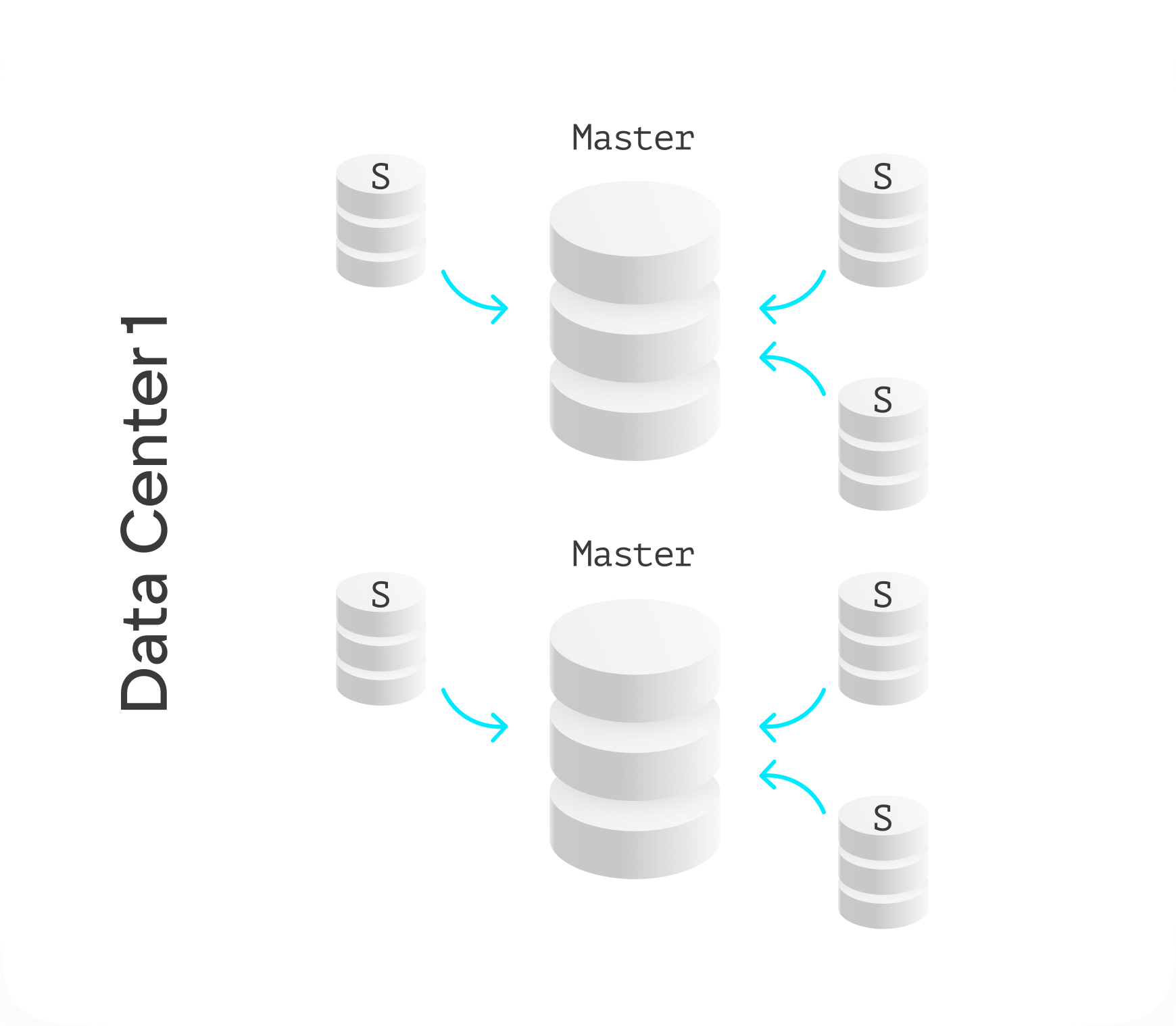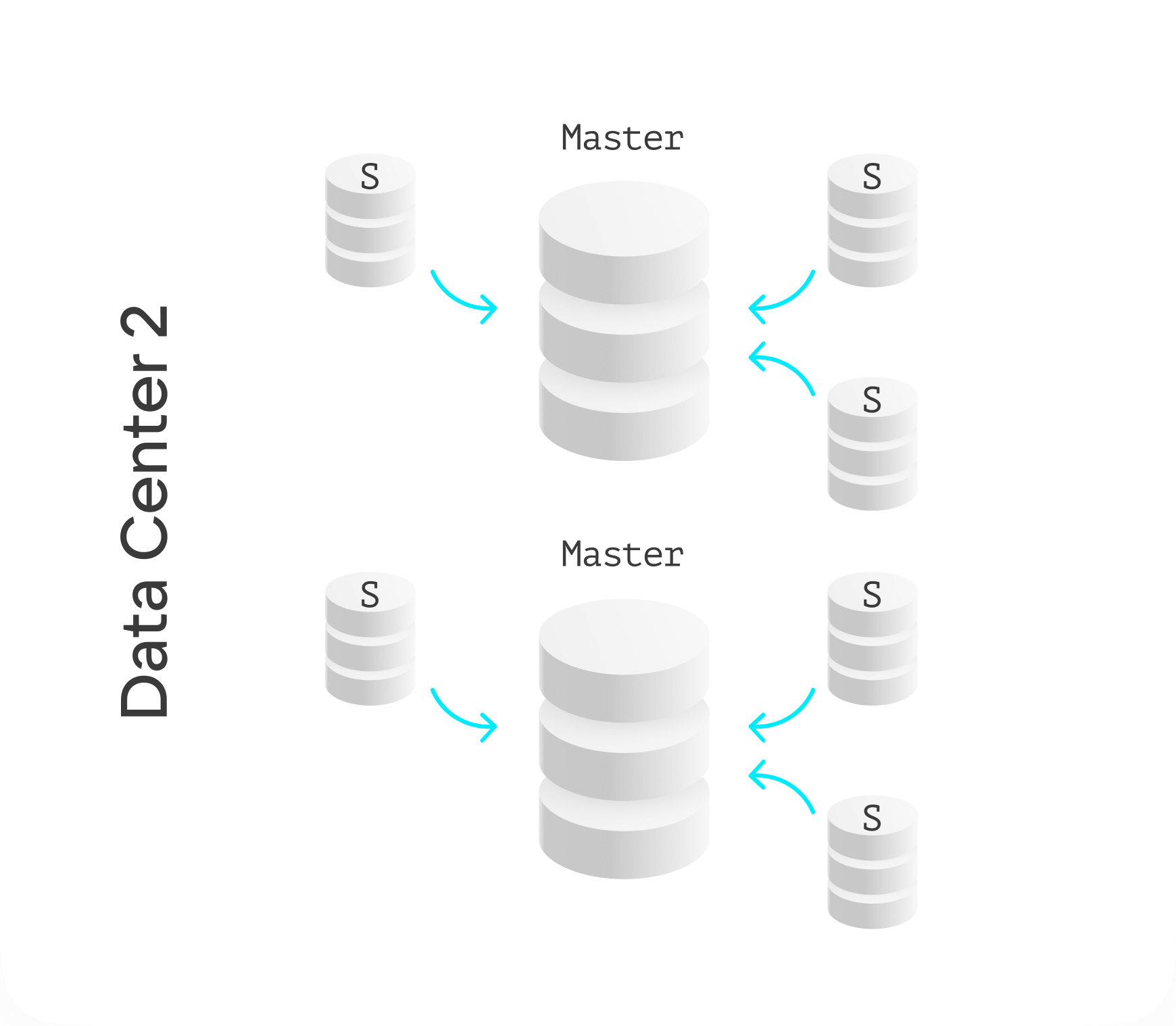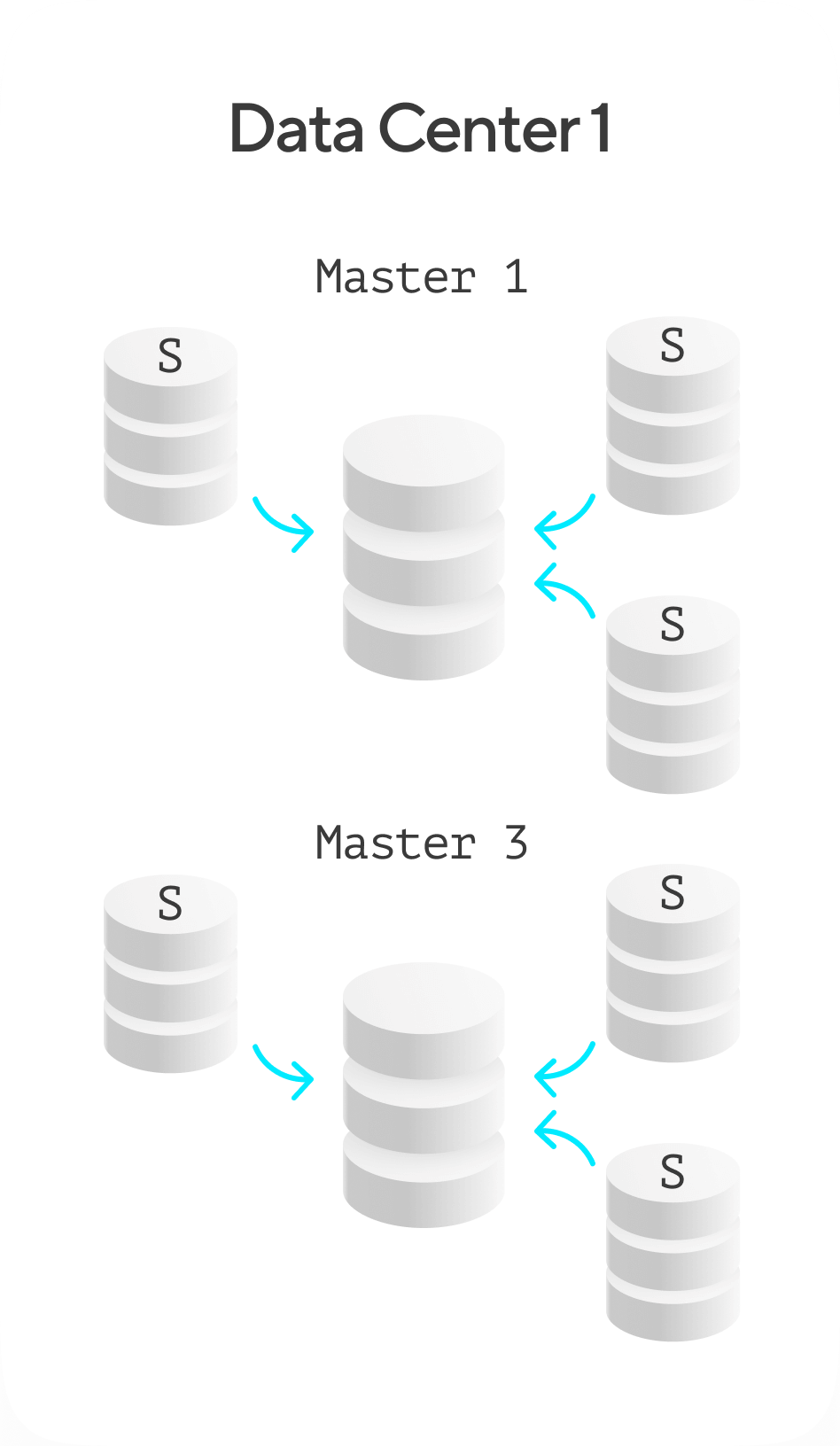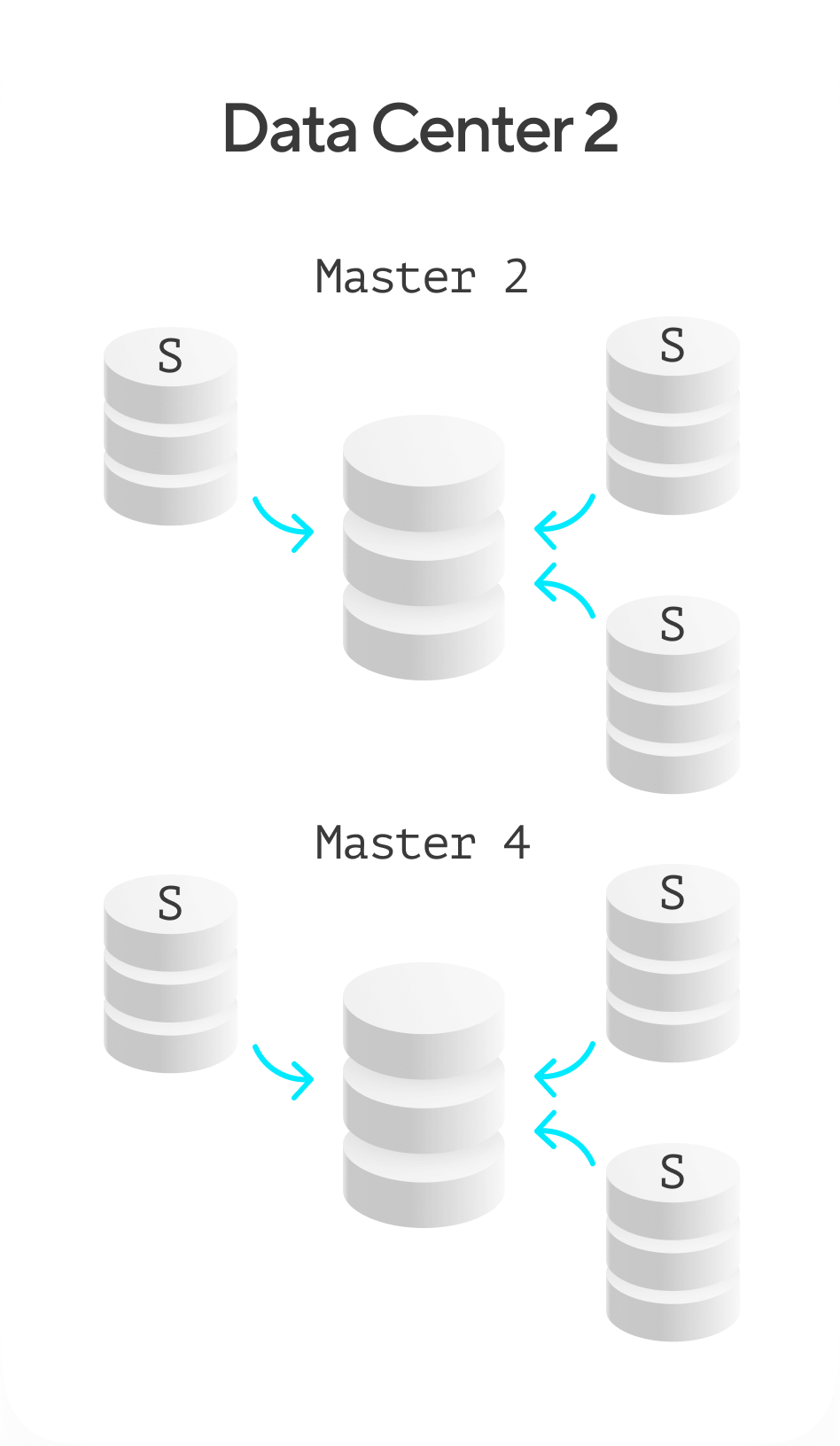During the first stage, the developers ruled out any paid services because
those costs exceeded the IT budget. That’s where Tarantool
appeared. First, the team began transferring high-performance services
that required many MS SQL database instances.
Today, the technical team of Wildberries has its own approach
to creating reliable distributed systems. Tarantool is ideal for those systems as a universal
storage for high-demand data: user profiles, banners,
discounts, etc. In total, the company has twelve Tarantool-based
microservices.
-
The most critical service of the Wildberries website is the User Profile Master
Storage, which contains data
of 50 million users. MS SQL was been completely discarded in this case.
-
The service that allows saving items for later is the company's most extensive Tarantool-based service. It takes
about 120 GB of memory and has 3–4 copies
in each data center.
-
In RPS terms, the highest-loaded services are the Promotizer
and the User Profile Master Storage, receiving about
6,000 and 12,000 requests per second, respectively.
-
The warehouse system's quick reference materials, where some information can be rechecked, also run on Tarantool.
Here is how Tarantool operates.
There
are several master instances hosted on virtual or hardware machines
in each data center. The connections follow the master-master pattern. Interfaces,
or synchronizers, download information and write
it onto the masters (e.g. information about discount coupons
and their terms and conditions). Replicas hosted on virtual
machines or in Kubernetes connect to these masters.
On top of that, there are applications that access the replicas.
Each application works with two clusters. In case
of a data center failure, an application can access
the other cluster. There is a layer that stores the
Tarantool Go driver interface and hides the logic. This layer
sees all the replicas and can perform reads and writes on the master.









